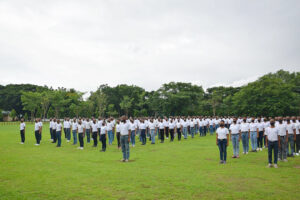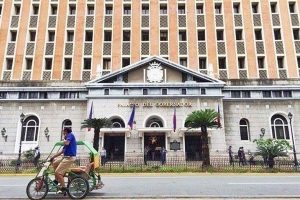Marcos: ROTC to boost country’s disaster response

PHILIPPINE President Ferdinand “Bongbong” R. Marcos, Jr. at the weekend said mandatory military training for Filipino students would boost the country’s disaster response.
The training, which was dropped two decades ago after a university student who exposed corruption in the program died, would train students not only for national defense preparedness but also for disaster response, he said in his video blog on Saturday night.
“Although it’s natural for us Filipinos to be helpful, it is still different if there is training and correct response preparation,” the president said in Filipino, based on a statement from his office.
Senator Sherwin T. Gatchalian has a refiled a bill seeking to revive the military training for Grades 11 and 12 students to ensure the country has enough soldiers during war. The bill is part of Mr. Marcos’ priority agenda.
The Child Rights Network last week said mandatory military training for students violates international commitments on child human rights and existing laws.
The state should instead follow the United Nations Convention on the Rights of the Child recommendation in 2008 to promote the values of peace and respect for human rights. These should become basic subjects, it said.
Mr. Marcos again pushed the revival of mandatory student military training days after the country’s north was rocked by a magnitude 7 earthquake, which was also felt in the capital region.
The President said the country should also build “disaster-proof” infrastructure and communities.
Mr. Marcos, meanwhile, thanked the private sector for responding to the needs of quake victims by sending food, water, and generators.
He also pushed the creation of a medical reserve corps under the Department of Health that will be tapped during disasters and public health emergencies.
The corps will be composed of licensed physicians, registered nurses, licensed allied health professionals and medical students who have completed four years of medical course.
But some health groups said the bigger problem is the shortage in health workers. Mr. Marcos should also prioritize raising the salaries of health workers especially those who serve in remote areas, they said. — Kyle Aristophere T. Atienza




